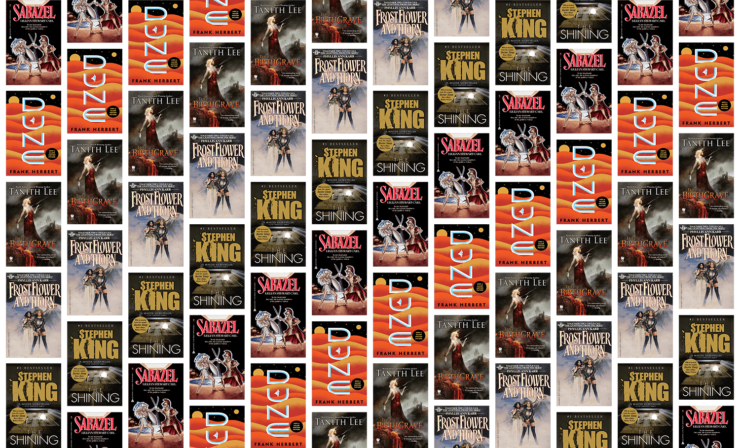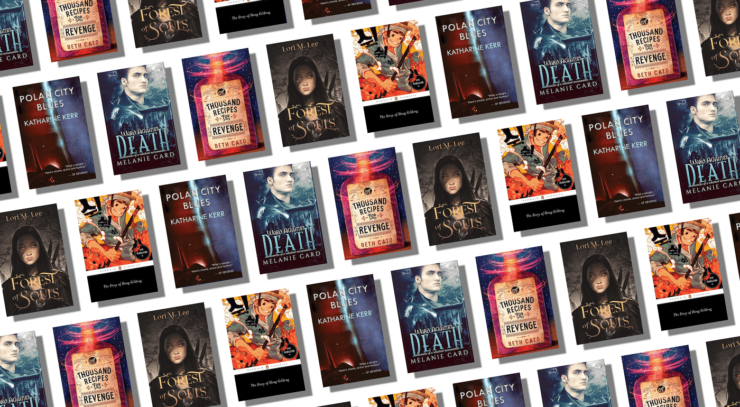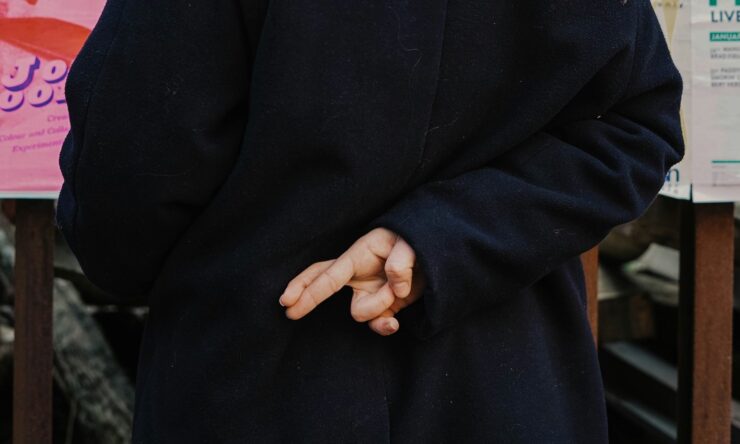So often in literature, mothers are “characters” in the worst way—one-dimensional caricatures, punching bags for the misogyny soaking our society. Far rarer (in both lit and life) are the mothers allowed to be whole human beings. Motherhood is not easy. It’s hard, brutal, utterly exhausting and often unrewarded work. In literature, film, song, or other art, mothers are commonly reduced to a single function, either passive (often actually dead) saints or baby-eating horrors. It’s rare for a mother-character to be allowed wholeness, autonomy, or any kind of real agency.
Here are five of my favourite books in which mothers are allowed to be whole human beings.
Lady Jessica — Dune by Frank Herbert

Cleolinda Jones often advanced the theory that certain characters turn “meta”, and resonate far beyond their creator’s intent even in the text that is supposed to trammel them. (Just look at Eowyn of the Rohirrim.) There are certain characters so vivid, despite their creators’ attempts to keep them contained, the reader cannot help but sit up and take notice.
It would have been easy for Lady Jessica to be a simple cipher, an illegitimate Harkonnen, a product of the Bene Gesserit breeding program, Leto’s self-abnegating wife. (Let’s not even talk about the feudal women-as-property underpinnings that apparently will be with “civilization” when we figure out FTL travel…) Fortunately, Herbert must’ve been too busy juggling his ecological hobbyhorses to notice he’d written a woman as a complete human being.
Jessica is smart, committed, deadly in interpersonal battle, and an integral part of Leto Atreides’s rule. It’s her decision to take control of her bodily autonomy and have a son (instead of the daughter the Bene Gesserit “require”) that makes a galactic jihad and the Golden Path possible. The reason given in the text is that she wanted to give her husband a male heir, but I like to think at least some of her decision was a giant “fuck you” to those who told her what to do with her own body.
It’s Jessica whose interactions with Shadout Mapes lays the groundwork for the Atreides to be seen as different from the Harkonnens, and Jessica whose status, skills, and quick thinking make sure the Fremen don’t just kill her and her son outright. It’s Jessica who raised Paul to become Muad’Dib. She is a whole person instead of the cardboard cutout so many mothers in fiction are reduced to.
Not only that, but Jessica is committed to her children, and protects them with a fierceness that shatters an entire galactic empire. Paul and Alia both suffer from uncertainties, but neither ever doubts their mother’s love.
Much of Herbert’s writing can be ponderous in the extreme. Yet whenever Jessica is onstage she’s magnetic, the action moves along at a cracking pace, and the reader can’t look away. She’s a survivor, a mother, a grandmother, and the best thing about the Dune books.
Karrakaz — The Birthgrave Trilogy by Tanith Lee
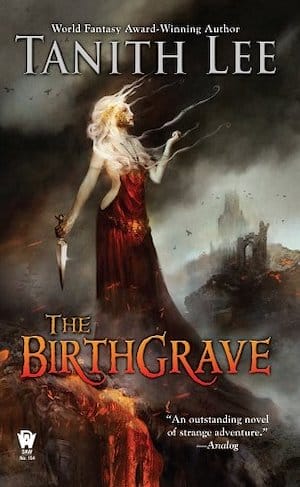
It’s no secret I’m a huge Tanith Lee fan. The gorgeous prose and arresting images are only part of the fascination; Lee’s work never shied away from shark-filled psychological depths. In the Birthgrave trilogy, Karrakaz is never reduced to “just a mother”, even in the last two books when the product of her unwilling union with an absolutely horrid, controlling psychopath of a conqueror is ostensibly the protagonist. Not only that, but Tathra—the woman Karrakaz leaves her infant son with for a variety of reasons—is a whole person as well, never degraded into the “saintly mother” trope even if she is clearly thrilled to be a mother.
Karrakaz starts from literal nothing, makes her way in a world where nearly everyone she meets wants to kill or control her, and her heroine’s journey is both classic and groundbreaking. She also wields a mean bow, carries powers beyond human imagining, and finally reaches self-understanding with the help of a psychic spaceship.
Lee did not have to go so hard as an author, but she always did. I like to think Karrakaz takes a page out of her creator’s sheer stubbornness.
The entire trilogy is laden with examinations of trauma, misogyny, women wresting bodily autonomy and agency wherever they can, and the cost of power both political and personal. Through it all, Karrakaz is a driving force even when she’s not present, and her choice to opt out of motherhood is explored unflinchingly.
Frostflower & Thorn — Frostflower and Thorn by Phyllis Ann Karr
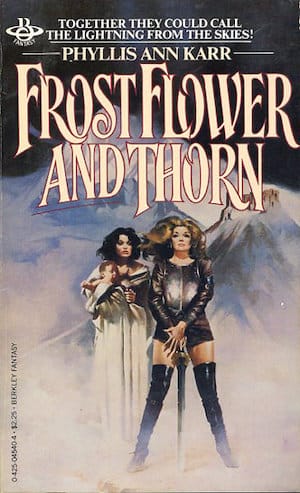
Frostflower and Thorn opens with a female mercenary figuring out she’s pregnant, and coming across a sorceress who can solve that particular problem the condition represents for a woman who must earn a living by the sword. Both Thorn (the mercenary) and Frostflower (the sorceress) are mothers; deciding to terminate a pregnancy is no less an act of motherhood than adopting a child that is not “biologically” yours.
The alliance between the two is wonderfully written. Both are allowed to be whole, entire people in their own right, even in a misogynist world where any woman’s exercise of power—by sword, sorcery, or any other means—is viewed as deeply suspect at best and an offense deserving death at worst. Thorn’s aggressiveness is presented as a natural part of her personality as well as a habit trained in by survival throughout, and Frostflower’s pacisfism is not self-abnegating sainthood but a philosophical and temperamental choice. The developing bond between two very different women with very different goals, outlooks, and personalities is wonderfully written.
Not content to simply hit an examination of motherhood out of the park, Karr also unflinchingly describes rape as what it is—a crime of power, not of sex—and does all this while also showing thorough and complete mastery of classic sword-and-sorcery tropes.
Danica — Sabazel by Lillian Stewart Carl
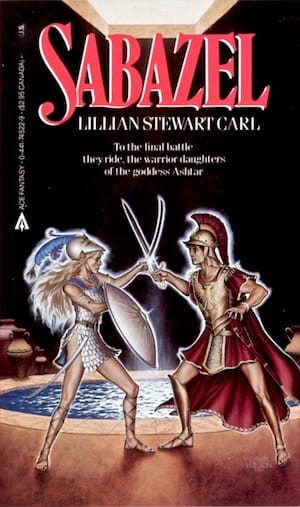
I can only describe the experience of reading Sabazel when I was about thirteen as mind-blowing. Carl’s imagining of an Amazonian society which must survive surrounded by patriarchal cultures is deeply researched, utterly riveting, and a cracking good tale to boot.
Danica, the priestess-queen of Sabazel, is one of the best female characters in literature. She is unapologetically powerful, at home on the battlefield or in the bedroom. Being a fiercely protective and loving mother to her daughter Ilanit is the least of her roles; she’s also a warrior, general, political strategist, an avatar of her beloved goddess…and, by a third of the way into the book, pregnant with a god-king’s heir. Which does not slow her down one iota.
Like Lady Jessica, Danica has complete autonomy (bodily and otherwise) despite the many attempts to rob her and her country of it. She engages with Bellasteros the conqueror on her own terms, even between the sheets, and is a full and active partner to her goddess. Like Karrakaz, she gives up a male infant to another woman (Chryseis, another wonderfully delineated mother figure) because that’s what’s best for her children, her land, and herself.
Also deserving of mention is the figure of Atalia, Danica’s weapons-master and lieutenant, who shows another aspect of mothering—intense, protective, and not needing a biological link to fill the role in another’s life.
Wendy — The Shining by Stephen King
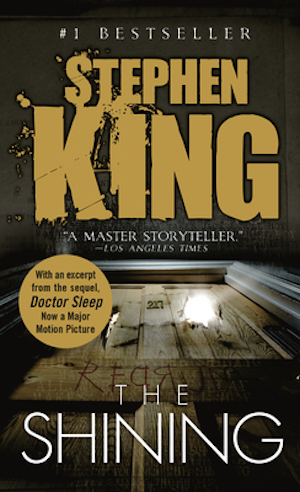
I’m a huge King fan, even when some of his female characters are paper cutouts. There are marvelous exceptions (Rose Madder springs to mind, though I’ve read in interviews that he hates that book with a passion), and first among them is Wendy Torrance.
One might be forgiven for thinking Jack is the focal character of The Shining, or Danny. For me, it’s always Wendy. It’s her influence that gives Danny a refuge from Jack’s weakness and rage, her hard work put into raising her son that gives Danny the means to resist the carnivorous Overlook, and her courage that allows both her and her son to survive long enough to escape.
Kubrick’s cruelty to Shelley Duvall during the filming of the movie version is legendary, but even in that retelling meta-Wendy’s strength and commitment shine through. Those who bleat why didn’t Wendy leave Jack when he broke Danny’s arm are simply betraying their own misogyny—escape is not often an option when one has a child, especially since our entire society conspires to turn children into abusive fathers’ hostages, psychologically, physically, and economically. It takes a great deal of strength to fight that constant, unrelenting pressure, and Wendy does it as best she can.
Wendy is never taken in by the Overlook; she isn’t seduced by its (dubious) charms, and the book to me is a battle, Jack (and the Overlook) vs. Wendy for their young son’s literal soul. Wendy wins, yes—but many mothers fall in those campaigns, and lie unremembered.
***
This list isn’t comprehensive; I could go on for days. I could also go on about bad mothers who are allowed to be portrayed as whole, independent human beings…
…but that’s (as always) another story.
Buy the Book
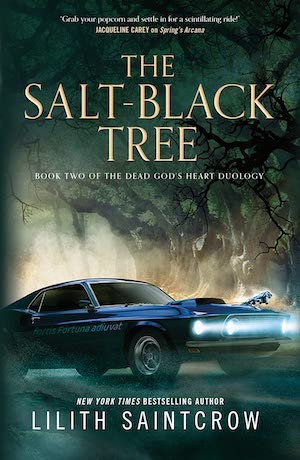

The Salt-Black Tree
Lilith Saintcrow was born in New Mexico, fell in love with writing during second grade, and has continued obsessively ever since. She currently resides in the rainy Pacific Northwest with her children, dogs, cat, and a library for wayward texts.










